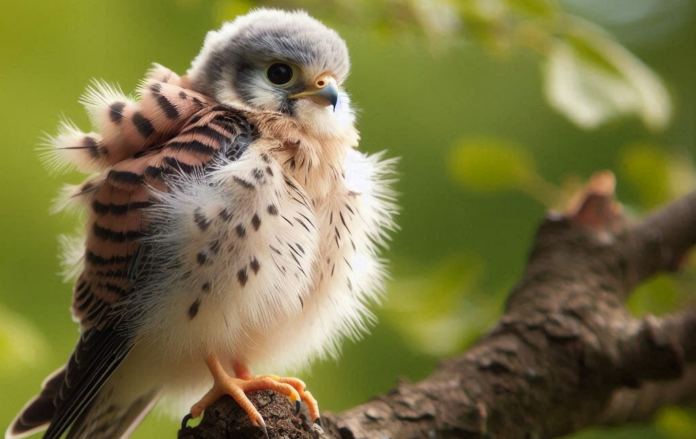Paradise Park Wildlife Sanctuary celebrates a breakthrough as one of its rehomed collared falconets lays eggs for the first time
In a significant achievement for wildlife conservation, a collared falconet at Paradise Park Wildlife Sanctuary in Cornwall has laid eggs. This marks a major milestone for the sanctuary, which is home to the only collared falconets in UK and EU zoos. These rare birds were rehomed at the sanctuary in early 2021 after an attempt to bring them into Europe illegally.
David Woolcock, the curator at Paradise Park, expressed the team’s excitement over the breakthrough. “We are thrilled to announce that one of our collared falconets has laid eggs for the first time since their arrival,” Woolcock said. However, the exact identity of the falconet that laid the eggs remains unknown.
Embed from Getty ImagesThe sanctuary has opted to minimize disturbance to the nest to ensure the best possible outcome for the eggs. “We are leaving them alone and not disturbing them to give them the best chance, so it will be a little while before we know if the eggs are fertile and have hatched. But even reaching this stage is a breakthrough,” Woolcock explained.
The rehomed falconets, consisting of two females and one male, were given a safe haven at Paradise Park after being unable to return to the wild. The birds have a broad distribution in their natural habitats, spanning across Bhutan, Cambodia, China, India, Laos, Myanmar, Nepal, and Thailand. They are known for their diverse diet, which includes insects such as cicadas, dragonflies, bees, and butterflies, as well as small birds.
The successful laying of eggs by the collared falconet not only highlights the sanctuary’s efforts in conservation but also provides hope for the future breeding and survival of this rare species.
Analysis
Political
The successful breeding of the collared falconet at Paradise Park Wildlife Sanctuary has broader implications for wildlife conservation policies. It underscores the importance of stringent regulations and international cooperation to prevent illegal wildlife trade. The UK government, along with EU authorities, may leverage this success to advocate for more robust policies and increased funding for wildlife sanctuaries and conservation programs. This breakthrough highlights the need for ongoing political support to protect endangered species and prevent illegal trafficking, ensuring that such wildlife can thrive in protected environments.
Social
Socially, this achievement resonates with increasing public awareness and support for wildlife conservation. The story of the rehomed falconets laying eggs can inspire communities and individuals to engage more actively in conservation efforts. Educational programs and public outreach by Paradise Park can further amplify this success, encouraging people to support wildlife protection initiatives. The narrative also sheds light on the dedication of sanctuary staff and the critical role they play in preserving endangered species, fostering a greater appreciation for such efforts within society.
Racial
The collared falconet’s diverse natural range across several Asian countries highlights the importance of international collaboration in wildlife conservation. This event underscores the shared responsibility of nations to protect biodiversity. By successfully rehoming and breeding these birds, the UK demonstrates its commitment to global conservation efforts. It also serves as a reminder of the cultural and ecological significance of preserving species that are part of the natural heritage of multiple countries. Promoting such collaborative conservation efforts can help bridge cultural and national divides, fostering a more inclusive approach to environmental stewardship.
Gender
While the story primarily focuses on the collared falconets, it indirectly touches upon the gender dynamics within the field of wildlife conservation. The success of this breeding program may encourage more women to pursue careers in conservation, highlighting the impact they can have in this field. Increased visibility of successful conservation efforts can inspire a new generation of female conservationists, promoting gender diversity and equality within the sector. Recognizing and celebrating the contributions of women in wildlife conservation can further strengthen the field by ensuring diverse perspectives and approaches.
Economic
Economically, the breeding success of the collared falconet can have positive implications for Paradise Park Wildlife Sanctuary. Such milestones can attract more visitors, leading to increased revenue and funding opportunities. This financial boost can support further conservation projects and improve the sanctuary’s facilities. Additionally, the successful breeding program can enhance the sanctuary’s reputation, attracting partnerships and sponsorships from organizations committed to wildlife conservation. Investing in the well-being of endangered species not only benefits biodiversity but also contributes to the local economy by promoting eco-tourism and educational initiatives.
